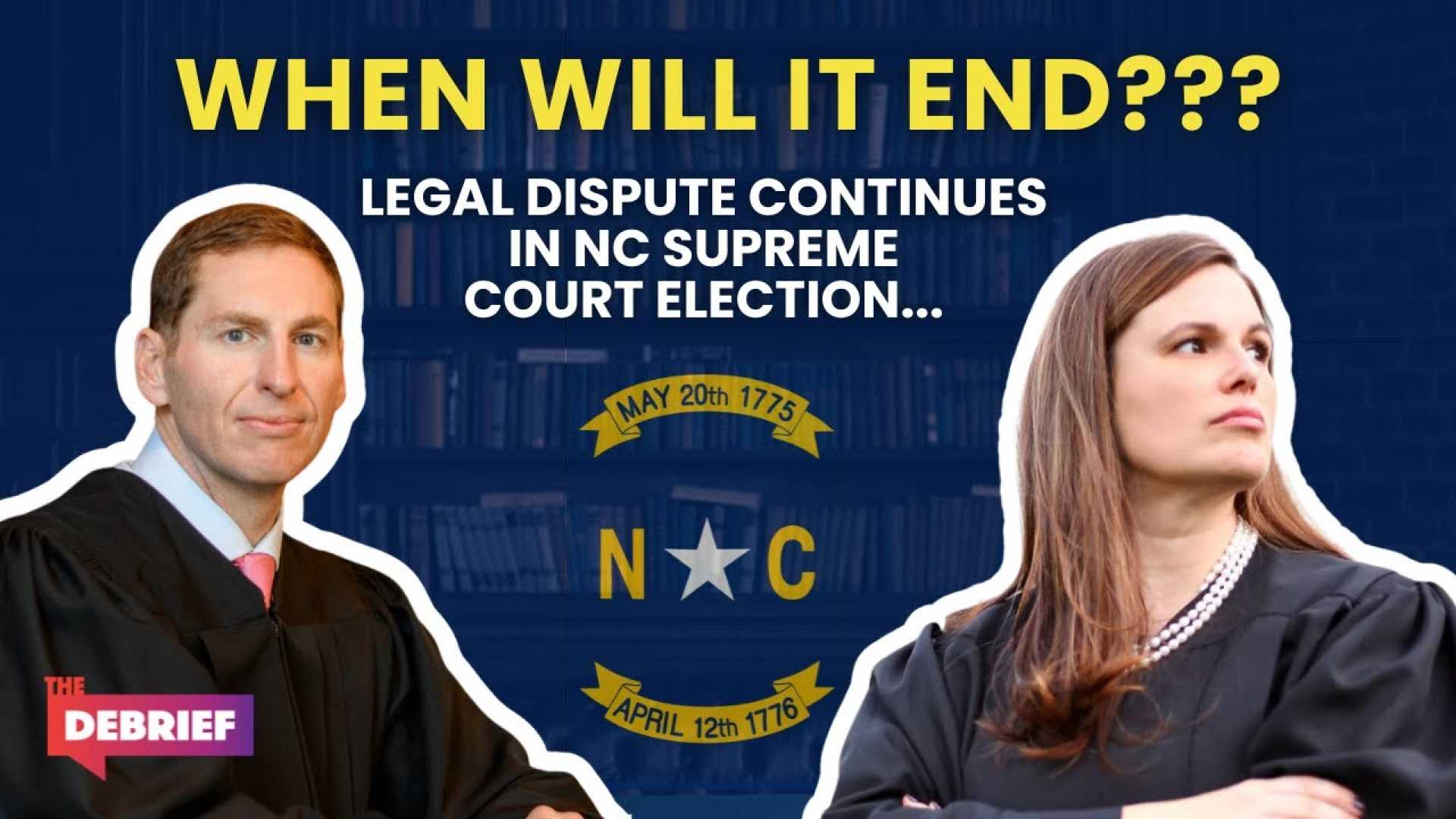Politics
North Carolina Supreme Court Battle Over Military Votes Intensifies

RALEIGH, N.C. — A contentious legal battle over military and overseas ballots has thrust North Carolina’s Supreme Court into the national spotlight, as Republican Court of Appeals Judge Jefferson Griffin seeks to overturn a narrow election loss by challenging thousands of votes cast in Democratic-leaning counties.
Griffin, who lost the 2024 state Supreme Court race to incumbent Justice Allison Riggs by 734 votes, has filed an election protest arguing that 5,509 ballots from military and overseas voters should be invalidated. His challenge focuses on four Democratic strongholds—Buncombe, Guilford, Forsyth, and Durham counties—where Riggs won by significant margins. Griffin claims these ballots were cast without proper photo identification, a requirement he says applies to all voters under state law.
“This case presents a fundamental question: who decides our election laws?” Griffin’s lawyers wrote in a court filing. “Is it the people and their elected representatives, or the unelected bureaucrats sitting on the State Board of Elections?”
The State Board of Elections, however, maintains that the law exempts military and overseas voters from providing photocopies of their IDs. The board argues that these voters are required only to provide their name, birthdate, and Social Security or driver’s license number, along with an attestation of accuracy. The exemption, established in a 2011 law, was not explicitly repealed by the 2018 voter ID constitutional amendment.
Griffin’s challenge has drawn sharp criticism from Democrats and voting rights advocates. “This is a specific and targeted attempt to silence active-duty members of the military, civil servants serving overseas, and other North Carolinians living abroad,” said Embry Owen, Riggs’ campaign manager.
The case has also raised concerns about the integrity of the state’s judicial system. The Republican-dominated state Supreme Court, which has a history of partisan election rulings, agreed to hear Griffin’s appeal on January 7. Critics argue that the court’s involvement could undermine public confidence in the electoral process.
“If the Supreme Court sides with Griffin, the fallout will be immediate and brutal,” warned Andrew Dunn, a conservative political strategist. “This isn’t just bad optics; it’s potentially a credibility-shattering disaster for the court, the party, and conservatism in North Carolina.”
Griffin’s legal strategy hinges on three main arguments: invalidating votes from voters with incomplete registration information, challenging ballots cast by individuals who have never lived in North Carolina, and targeting military and overseas ballots. While the first two arguments have gained little traction, the third has become the focal point of the case.
Statewide, 32,034 military and overseas ballots were cast in the 2024 election. Griffin has chosen to challenge only those from Democratic-leaning counties, a move that has fueled accusations of partisan bias. “Griffin is trying to steal a race he lost,” said outgoing Democratic Gov. Roy Cooper. “If he wins, voters in North Carolina will be unable to walk out of a voting booth ever again and feel confident that their vote will count.”
The case is now before the U.S. Fourth Circuit Court of Appeals, which will decide whether federal courts have jurisdiction. A ruling is expected soon, but the legal battle is far from over. Regardless of the outcome, the dispute has already left a lasting mark on North Carolina’s political landscape.












